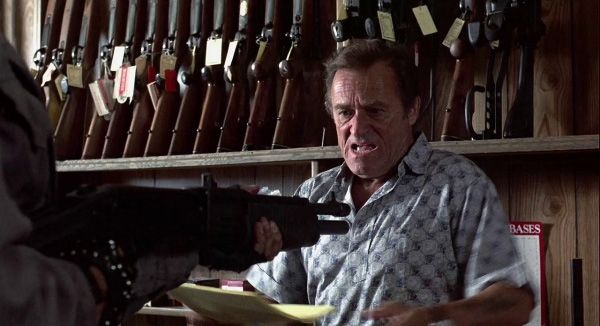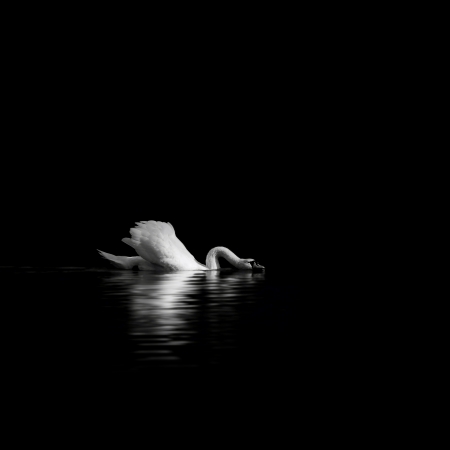. . . .The Highwaymen (2019) Netflix Original. Retelling the 1930’s Bonnie Parker and Clyde Barrow folk ballad (faux) hero tale from the perspective of the two retired Texas Rangers who massacred them without mercy.
I love that we don’t really see the killers, Bonnie and Clyde, and we never see their faces, until the very end, when they are killed in a hail of bullets. This underlines how much pov creates sympathy for even the most evil of figures.
This alone creates a discursive antithesis to Warren Beatty and Fay Dunaway's Bonnie and Clyde (1967), the one, after seeing it, I declared their deaths were necessary and not heroic. “They killed innocent people,” I said, which was indeed shown on screen in that film so famous and vaunted for style and counter-cultural narrative, and which influenced the style of women as much as the real life Bonnie Parker’s did (the beret! hair style! writing very poor poetry!). My mistake of a first husband responded, “They were just stupid people. Who cares?” showing our marriage was rushing down the drain of irreconcilable differences.
This one, featuromg wonderful Kevin Costner (who also produced and directed), and equally wonderful Woody Harelson, is sort of a present day counter-cultural narrative, taking mild pains to condemn the giddy media coverage of these un-Robin Hoods, who rob banks and kill poor and innocent people, and the even more frenzied support of the public, naming them heroes. It’s speaking to the instantaneous with which online communities build up and take down figures
– even to the Columbine killers in their flapping dusters under which they conceal weapons, as does The Terminator’s (1984) Kyle Reese, when trying to save Sarah Connor from Schwartzenager.
But it wants to have its condemnation of mass media glamorization of violence and have its violence too, quite like John Ford, after re-examining his decades of films of glamorizing the single righteous man with a gun, tries to do, in The Man Who Shot Liberty Valance (1962) Like The Highwaymen, so does this fail, in the end., when Jimmy Stewart’s Ransom Stoddard, who condemns violence in favor of the law and court, to save his own masculinity, goes out with a gun to face Lee Marvin’s Valance, the most violent man of all, while John Wayne’s Tom Doniphon is the real secret assassin behind the wall – and the paper’s editor prefers to prints the lie of Stoddard glory rather than the truth of Donophin's anonymous kill – and Stoddard gets the girl and become a Unites States Senator on the back of the glory of his fake kill.
https://www.youtube.com/watch?v=X1hLe8rSir0
There’s a sly scene in which Kevin Costner’s Frank Hamer – is acquiring the armory with which he’s going to face the Barrow Gang. He requests one lethal weapon after another from the gun seller. The seller says, “Which one do you want?” He says, “All.” Right out of the 1984 The Terminator*, where Arnold Shwartzenager plays the same scene, with the same terse words, originally, though the scene doesn't conclude the same way with Hamer's acquisitions.
Things get more cruel and heartless in the future than they already are -- and let's not forget what's around the corner historically from this moment in Germany and Europe.
A great deal is made in The Highwaymen by Hamer and Maney Gault, with barely straight faces, concerning the technological advances in law enforcement since the days they rode the Mexican borders on horseback with their peace keepers – wire taps on the party phone lines! While surely most of those watching this Netflix Original film have no idea what a party line even is. So here we have a chronological meditation meta rondelay between three films: Bonnie and Clyde (1967), also set in the 1930’s, The Terminator (1984) set in the 1980’s but permeated by 2049, only 20 years in the future of the time in which we are watching (2019) The Highwaymen, still set in the 1930’s.
The scenes of endless highway unfurling over the Texas llano under the endless sky within far distant horizons banked with blue, lavender and white cloud strata, and at the west the nearly set sun glows palely, soothe our troubled soul and sore heart.
The location scenes in Louisiana's dark woodlands are disturbing, evocative of inevitable impending bloody justice, as we drive those narrow dirt roads between the piney woods not yet lumbered out. It's the drive to Angola Prison, always dark, always confined, whether day or night, sunshine or cloud. A long way of unbroken oppression, with only cruel confinement at the end of the road.
I enjoyed watching this film then for several reasons. It gave me a lot to look at that I liked, starting with the primary actors, and ending with the landscape. That is America. We cannot separate who we are from where we are, or, as can also be said, economic, political, cultural and technological, there's a lot of US history to unpack here, provided with a not so concealed wink.
Many thanks to Richard Slotkin's magnificent trilogy of histories that insightfully examine the history of the USA through its culture of violence, giving a primary role to our entertainments that celebrate the righteous solitary man with a gun as the solution to every problem: Regeneration Through Violence (1973); The Fatal Environment (1985); Gunfighter Nation (1992).
~~~~~~~~~~~~~~~~~~~~~~~~~
*The Terminator (1984). Sheer coincidence that it is currently streaming on Netflix so I watched it right after The Highwaymen. I’ve never seen it before, which seems, somehow, odd. But until Buffy and dvds and streaming, I chose to stay away from most films filled from stem to stern with violence, which is called ‘action.’ For decades this kind of violence was so disturbing to me, I literally could not watch it, as I didn’t grow up on a constant viewing diet of of violence committed by people against people in gory detail – especially that done to women. And then, of course the additional trauma of the kidnapping, torture and rape of my sister. I still find detailed violence disturbing enough that I cannot keep my eyes on the screen, often leave the room, but, you know, completist.
So, considering some of the early scenes of shotgun concealed under a duster – the good guy – it feels that maybe the Columbine shooters got the idea here, rather than The Matrix. Or both, of course. The internet is filled with sites featuring dusters from both films, advertised for sale, the models holding weapons.
Sunday, March 31, 2019
Tuesday, March 19, 2019
Loss
. . . . I haven't posted in several weeks. The reason is that someone dear was lost shortly after we returned from the Postmambo Havana Nocturne trip in February.
Certain things are difficult to do; among them is engaging with much outside my immediate, face-to-face neighborhood and social-professional life. This will probably go on for a while.
This is such a pure grief though. There are no complications as with the deaths of parents, a child, a spouse. We were just really good friends. We just enjoyed each other's company.
This friend was beautiful, inside and out. I was always delighted just to see her; her vitality, her beautiful hair, her wonderful face, smile and hearing her laugh, her exquisite taste in clothes.
In all the time we were friends not a single negative crossed my mind. She loved the world and everything in it -- except, well, we all know who. and his cronies.
Everyone loved her back. It was an honor to be among her very very many friends.
Everyone who knew her, misses her.
She was a light, gone out, in the increasing dark.
We will remember her.
Certain things are difficult to do; among them is engaging with much outside my immediate, face-to-face neighborhood and social-professional life. This will probably go on for a while.
This is such a pure grief though. There are no complications as with the deaths of parents, a child, a spouse. We were just really good friends. We just enjoyed each other's company.
This friend was beautiful, inside and out. I was always delighted just to see her; her vitality, her beautiful hair, her wonderful face, smile and hearing her laugh, her exquisite taste in clothes.
In all the time we were friends not a single negative crossed my mind. She loved the world and everything in it -- except, well, we all know who. and his cronies.
Everyone loved her back. It was an honor to be among her very very many friends.
Everyone who knew her, misses her.
She was a light, gone out, in the increasing dark.
We will remember her.
Subscribe to:
Posts (Atom)










